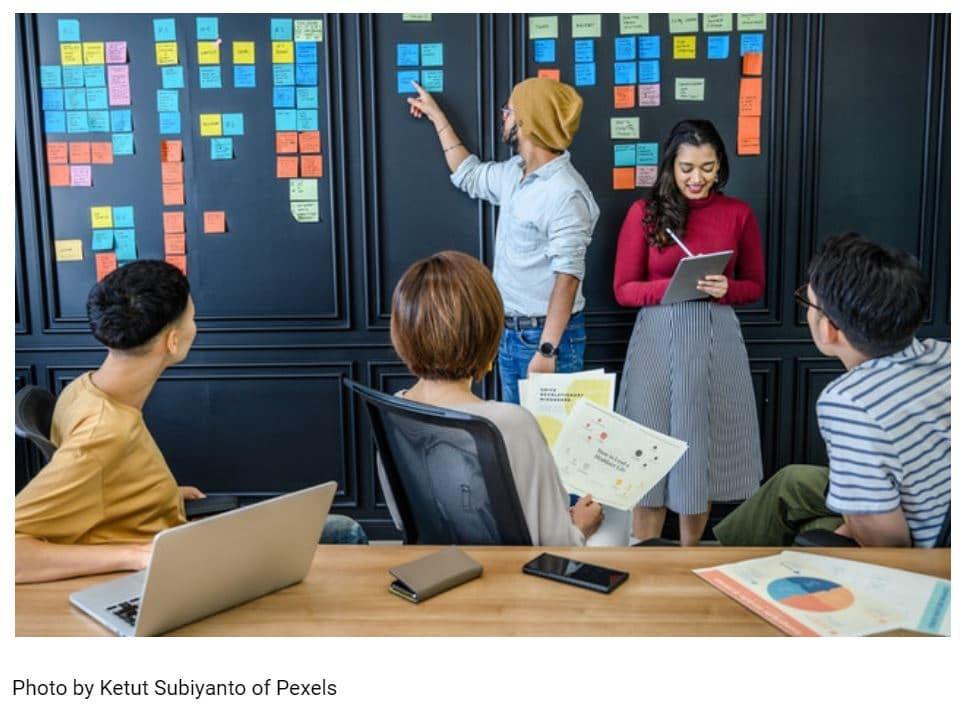
Written By: Christy S. Renjilian
Did you know that by 2025, Pennsylvania will need thousands of new teachers? Thousands?
And a glimpse at the collegiate level shows fewer college students are entering the track to becoming an educator.
In fact, according to data from the Pennsylvania Department of Education, the number of certificates for new teachers issued in Pennsylvania has dropped by roughly two-thirds over the past decade.
Add to that the compounding crisis we’re seeing, with experienced educators leaving the profession — a staffing shortage that’s compounded due to COVID and teacher dissatisfaction.
There are great things happening in classrooms, but there’s also stress and tension on a macro scale — at the state and national level, with these extreme teacher shortages, systemic failures, and community and political unrest that targets educators.
So what does this mean? And how can we address the crisis before it’s too late?
The Impact on the K-12 System
The traditional K-12 system is facing a staffing crisis. That’s a fact. Especially specialty areas in the middle and high schools. With urban schools nearly twice as likely as rural and suburban schools to have teachers working in their first or second year in the profession, they are struggling in a unique way.
The crisis has been brewing on the horizon for a long time and is coming to a head.
Most teachers view their job as a calling, a passion, educating children and helping them grow into their full potential. And they desperately want the system to work better.
Experts differ on the causes of the crisis. Aging baby boomer teachers already planning to retire, experienced teachers who are exhausted by the low pay, long hours, violence, disrespect, and animosity leaving the field, and college students, many who would like to be teachers, choosing not to — or leaving the field in their first couple of years.
The political and cultural environment is greatly impacting the educational system, too.
As a society, we are wrestling with the issues of who sets and controls curriculum, how we teach challenging topics, how we measure student success, and what is the link between teacher effectiveness and student outcomes.
Layered throughout all these issues is the role of parental choice and family engagement.
We tend to want the education system to solve all children’s and families’ problems but struggle to provide the necessary resources, particularly regarding mental health, basic needs, wellness, and housing support.
And the crisis extends beyond full-time teachers. We’re losing our substitute teachers as well.
So why are we losing so many excellent educators? And how is it impacting the early childhood education sector? Let’s take a look.
The Impact on the Early Childhood Education Industry
For a long time, the early childhood education (ECE) industry has been the “Cinderella” (before the ball) of the education family. Looked down upon, woefully under-resourced, and disrespected.
Research tells us a child’s brain development happens at the fastest rate during the first five years, and what happens during this time has a powerful and lasting impact on their ability to be successful in school and life.
And yet, ECE teachers are paid on average less than half as much as a K-12 teacher even when they have the exact same Teaching Certification.
Most people don’t know that Early Learning standards align with the K-12 system here in Pennsylvania: teachers, even those for infants and toddlers, write lesson plans that meet the objectives and requirements of the standards.
Teachers also conduct assessments and screenings to ensure our youngest children are developing and make referrals for those that need extra support. Just like their colleagues in the K-12 system do.
And yet, we discount and devalue the critical foundational role ECE educators have in the life of a child.
A trend for decades is that ECE teachers upon earning a teaching certificate — often times on scholarship from the ECE industry — would leave the field for a higher paying position in the K-12 field.
And now, with the staffing crisis in the K-12 system and some states reducing (or eliminating) their hiring requirements, even more, ECE teachers are transitioning to the school system.
Additional issues facing the ECE system are ongoing debates, among some elected officials, regarding the role of regulations and how to set standards to determine quality. Just like the K-12 system, some people are focused on fewer regulations and more or less parental choice and control.
As a nation, we continue to wrestle with issues such as parental leave and publicly funded pre-kindergarten. In Pennsylvania, Kindergarten isn’t even mandatory — a child doesn’t have to enroll in school until age 8 — typically the age of a third grader.
Community Connections for Children (CCC) serves as the resource and referral agency for several counties in South-Central Pennsylvania, and we know first-hand how difficult it is for families to find care.
ECE programs are operating at reduced enrollment because they can’t find staff. And in the world of early childhood education, with strict teacher-to-child ratios required, a reduced number of teachers means children can’t be served.
And if it is not addressed, this crisis will impact our local economy in the years ahead.
The children who are impacted by a lack of ECE programs, who are educated in classrooms with teachers without education, certification, and experience will be less prepared to become effective, skilled members of the workforce.
Making a Difference in South-Central Pennsylvania
An example of positive growth and change here locally is The York County Early Learning Investment Commission (ELIC) led by Peter Brubaker and Tony Campisi. They instituted an Early Childhood Educator Award in early 2022.
The commission raised over $500,000 in both public and private funds to provide a stipend to educators employed at STAR 2, 3, or 4 sites.
The award amount was based on the recipient’s educational level. Their purpose? To retain educators to improve outcomes for children.
CCC approved the applications and administers the program.
And it’s important to note that there has been an increase in joint professional development sessions between ECE and K-12 staff to align curriculum, support and engage families, and link community services to schools. This has improved connections between these two branches of the educational system which in turn has improved relationships with families.
How Our Community Can Work Together to Curb These Staffing Trends
First things first, we can all pause and reflect. And ask hard questions, questions like, ‘How are our actions showing the respect we have for teachers as professionals?’
To curb the staffing trends, we need to lower the temperature of the current environment. Teachers are not adversaries. Rather they are highly trained, certified professionals with a passion for serving children and families.
Their calling is to ensure every child reaches their full potential. And if we as a community can breathe and remember this, and show respect even when disagreeing, it would go a long way in helping teachers rekindle their joy in teaching.
We also need to recognize that it is not the educational system’s role to solve all of society’s problems.
Let’s hold ourselves, our communities, elected officials, and other private and public institutions accountable for their role in developing children and supporting families.
Remember, educators — serving children of all ages — deserve to be seen as the experts they are.
And of course, teachers deserve compensation at a level commensurate with other credentialed professions. And the elimination of the pay disparities between ECE and K-12 teachers.
The most labor-intensive time period of education is the first five years when low teacher/child ratios reflect this challenge. And yet, this is the one period of time in which there is no public support. Unless a family is determined by some governing agency to be impoverished based upon specific income guidelines.
We all know infant care is expensive, but most people forget that there are ONLY four children supporting ALL the costs associated with that teacher — salary and benefits — as well as all the operating costs.
The failed funding model of parents covering the full cost of care requires it to be subsidized by the low wages of the ECE teachers. And the system, which is always under great financial stress, is at the breaking point. There are many models of shared public/private funding.
Our community, business leaders, and elected officials must come together to radically alter the way we fund ECE for all families.
In summary, let’s value educators as skilled professionals worthy of respect and fair compensation.
And encourage our best and brightest (and certainly those with a passion) to go into teaching.
“Our teachers are role models, cheerleaders, champions for our students. Teaching is the profession that unlocks the workforce for all other professions, so we must find ways to encourage more individuals to answer the call and answer the classroom.”
— Eric Hagarty, Acting Secretary of Education for Pennsylvania
Community Connections for Children, Inc. (CCC) is a nonprofit centered in the heart of Pennsylvania. They are the backbone of the economy, serving childcare providers and low-income families ‒ the ones that have been impacted the most by the pandemic.
For you and your business, CCC helps keep childcare options open for your employees ‒ saving missed work hours and lowering on-the-job stress levels. They work with early childhood education programs and home-based providers to improve the quality of care, ensuring that all children enter school ready to be successful.
Christy Renjilian serves as its Executive Director.
To learn more and to donate, visit childcareconsultants.org.
Additional Reading:
Wolf administration unveils three-year plan to reverse teacher shortage
The most recent efforts to combat teacher shortages don’t address the real problems
Nationwide teacher shortage impacts Pennsylvania, local schools








